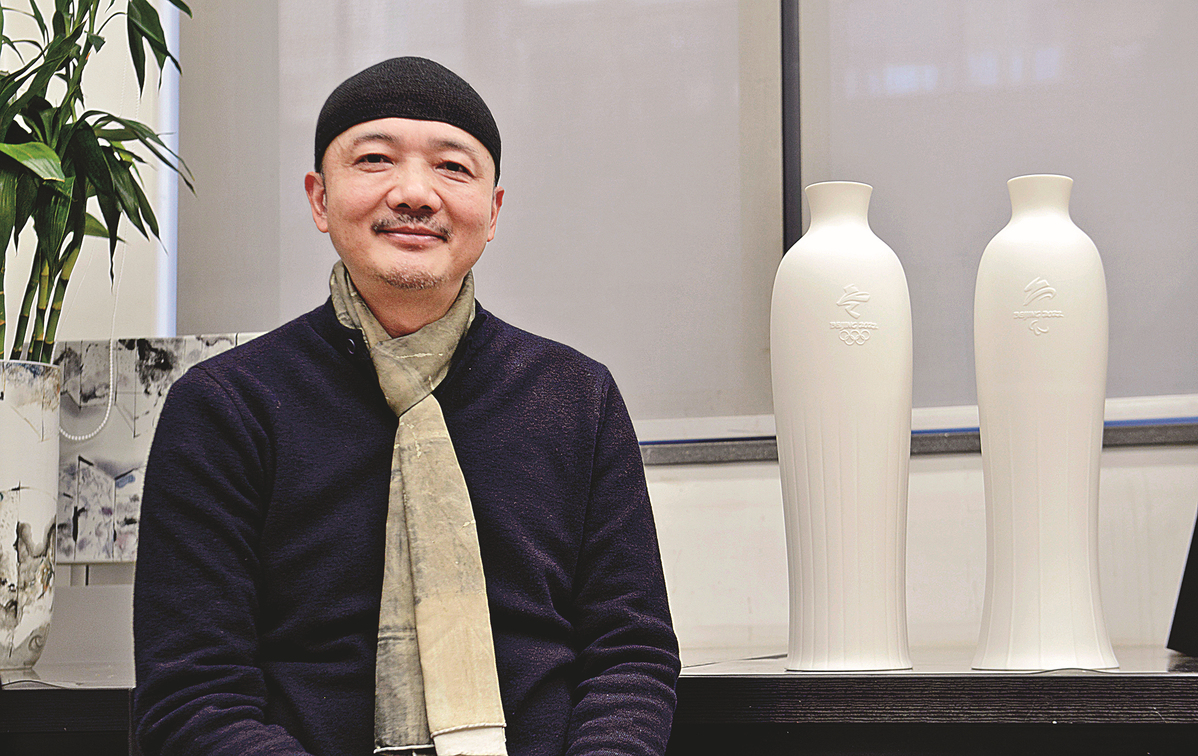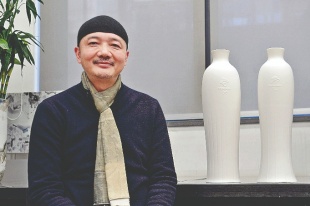Delicate vases
Artist taps into ceramics from Dehua county in Fujian province for the Winter Games, Wang Ru reports.


When artist Bai Ming visited Guimet Museum in Paris in 2009, he saw a Buddhist sculpture from Cambodia. The sense of quietness and the smooth lines of the work moved him, reminding him of mei ping (a type of vase popular in ancient China), and inspiring him to create a vase later.
In 2020, Bai, who is also a professor at the Academy of Arts and Design, Tsinghua University, was invited to create something to commemorate the 2022 Beijing Winter Olympics and Paralympics. He altered the original Wenjun vase and created new types of it for the events. His works were then selected as a licensed product for the Games by the Beijing Organizing Committee.
The series of Wenjun vases was released in Beijing in January.
Each has two patterns for the Winter Olympics and Paralympics respectively. Both are white vases, symbolizing the characteristics of sports related to ice and snow. On the vases there are emblems of the two Games, and lines extending to the bottom of the vases form the shape of a lotus seen from the bottom up.
"I believe nothing can behave better than an artifact to render beauty in an implicit and poetic way," says Bai.
He chose white ceramics made in Dehua county in East China's Fujian province to make the vases. According to him, the white ceramic of Dehua was transported overseas in ancient times, and has long been known as a top-grade Chinese porcelain. It once delighted Western people, and was praised by the French in the 19th century as Blanc de Chine, namely "white of China".
The jade-like appearance is also related to Chinese people's appreciation of jade. An idiom in Chinese says a person of virtue is just like jade. "Chinese people naturally appreciate jade, and connect it with something bigger, like the morality of a person. Jade seems to be pure, but it is believed to contain many things," says Bai.
Speaking about the name of the vases, Bai says Wenjun is a simplified form of wenrenjunzi, which means "literate of virtue" in Chinese.
- Curating a vibrant, complicated image of Asia through garments
- Exchanges between the East and West through a glimpse of glass artifacts on show
- Newly-opened Shenyang Museum tells the city's history
- Works by modern master to be auctioned in Shanghai
- Reverence for nature reflects French design brand's new crystal collection





































